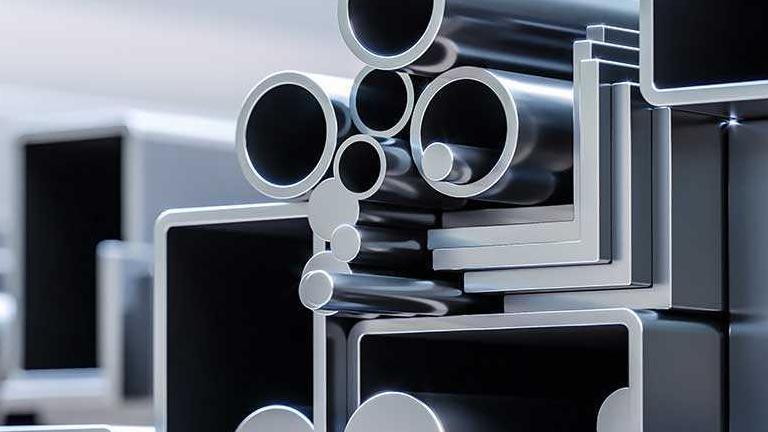
ADTO News
The Environmental Benefits of Using Aluminum Products in Construction
As the construction industry becomes increasingly focused on sustainability, aluminum has emerged as a key material that offers numerous environmental benefits. Lightweight, durable, and highly recyclable, aluminum products are revolutionizing the construction sector. This article explores how aluminum products contribute to reducing the environmental impact of construction projects, from resource efficiency to waste reduction.

Lightweight and Energy-Efficient
One of the most significant environmental advantages of aluminum in construction is its lightweight nature. Aluminum is up to one-third the weight of steel, making it easier to transport and handle during the construction process. This reduction in weight leads to several environmental benefits:
Lower Transportation Emissions: With reduced weight, aluminum products require less fuel for transportation, thereby reducing the carbon footprint associated with moving materials to and from construction sites.
Energy Savings in Manufacturing: Because of its lightness, aluminum products require less energy to move and install on-site, which directly contributes to energy efficiency throughout the construction process.
By utilizing lightweight materials like aluminum, builders can significantly reduce the overall energy consumption of construction projects, helping to lower emissions and overall environmental impact.
Recyclability and Sustainability
Aluminum is one of the most sustainable materials available today, largely due to its high recyclability. In fact, nearly 75% of all aluminum ever produced is still in use today, thanks to its ability to be recycled indefinitely without losing quality. This presents significant environmental advantages:
Closed-Loop Recycling: The ability to recycle aluminum products at the end of their life cycle means less demand for raw materials, reducing the environmental impact associated with mining and extraction. As a result, the need for energy-intensive production processes is reduced.
Reduced Waste: Since aluminum can be recycled repeatedly without degradation, construction projects that incorporate aluminum products contribute to minimizing waste. Instead of sending construction debris to landfills, many aluminum components can be repurposed or melted down to create new materials, thereby closing the recycling loop.
By incorporating aluminum into construction projects, builders can help reduce waste and promote a more circular economy, in which resources are reused rather than discarded.
Long-Term Durability and Low Maintenance
Another key environmental benefit of aluminum products in construction is their long-term durability. Aluminum is resistant to corrosion, weathering, and general wear, which means that aluminum-based structures and components require less maintenance and replacement over time. This leads to a more sustainable lifecycle for construction projects, offering both economic and environmental advantages:
Extended Lifespan: Aluminum products, such as window frames, doors, and roofing materials, can withstand the test of time without the need for frequent repairs or replacements. This long lifespan reduces the need for new materials, helping to conserve resources and minimize construction waste.
Reduced Chemical Use: Aluminum’s resistance to corrosion means that it does not require the use of harsh chemicals for maintenance. This minimizes the environmental impact associated with chemical treatments commonly used to protect other building materials from deterioration.
With less maintenance required and a longer lifespan, aluminum products contribute to reducing the overall environmental impact of construction projects.
Reduced Carbon Footprint in Production
While aluminum production is energy-intensive, the carbon footprint of aluminum products is significantly reduced when compared to other materials like steel or concrete. Advances in manufacturing processes have made aluminum production more energy-efficient, with modern techniques helping to reduce greenhouse gas emissions. Furthermore:
Energy-Efficient Production Methods: New technologies, such as the use of renewable energy sources in aluminum manufacturing, have made it possible to lower the carbon emissions associated with production. Some aluminum production plants are now powered by solar and wind energy, reducing the carbon intensity of aluminum products.
Reduced Need for Raw Materials: Aluminum’s long lifespan and recyclability reduce the need for constant mining and extraction of raw materials. The reduced environmental impact from resource extraction means less disruption to ecosystems and lower overall environmental degradation.
As the aluminum industry continues to adopt cleaner production methods, the environmental footprint of aluminum construction products will continue to decrease.
Sustainable Building Certifications
Incorporating aluminum products into construction projects can also help achieve green building certifications. Aluminum’s sustainability benefits align with various environmental standards and certifications, such as:
LEED Certification: The Leadership in Energy and Environmental Design (LEED) certification recognizes buildings that are energy-efficient, environmentally friendly, and sustainable. Aluminum’s recyclability and energy-efficient properties contribute to LEED points, making it an ideal material choice for green buildings.
BREEAM Certification: The Building Research Establishment Environmental Assessment Method (BREEAM) is another popular green building certification. Aluminum products can contribute to BREEAM credits for energy efficiency, materials sustainability, and low environmental impact.
By using aluminum in construction, builders can not only reduce their environmental footprint but also enhance the sustainability credentials of their projects.
Conclusion
Aluminum products offer numerous environmental benefits that are transforming the construction industry. From their lightweight properties that reduce energy consumption during transportation and installation to their high recyclability, aluminum is a versatile and sustainable material choice. Additionally, its durability and low-maintenance characteristics help extend the life of buildings while minimizing waste and the need for replacement.
As the construction sector continues to prioritize sustainability, aluminum will play an increasingly important role in building greener, more energy-efficient structures. For builders and contractors looking for eco-friendly solutions, incorporating aluminum products is a smart choice that contributes to a more sustainable future.
For high-quality, environmentally friendly construction materials, look no further than adtomall. Our range of aluminum products is designed to meet the needs of modern construction while supporting your sustainability goals.


 Live Chat
Live Chat
